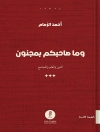In ‘The Mind in the Making: The Relation of Intelligence to Social Reform, ‘ James Harvey Robinson presents a compelling exploration of the intersection between cognitive development and societal progress. Written at the dawn of the 20th century, the text is characterized by its incisive prose, reflecting the period’s burgeoning interest in psychology, sociology, and educational reform. Robinson adeptly navigates through historical and contemporary contexts, elucidating how the evolution of human thought can directly influence social change. By advocating for a reevaluation of educational practices and a critical analysis of societal norms, Robinson’s work is as pertinent today as it was when first published, urging readers to consider how intelligence can actively shape and improve the world around them. James Harvey Robinson was a prominent historian, philosopher, and educator whose intellectual pursuits often revolved around the dynamics of social change and the evolution of human thought. His engagement with progressive educational theories and critical historical analysis paved the way for this book, as Robinson sought to dismantle archaic views and propose a transformative approach to understanding human intelligence and its capabilities. His background in history and philosophy provided him with a unique lens through which he examined the collective human experience. Robinson’s insightful discourse challenges readers to reconsider established paradigms, making ‘The Mind in the Making’ a must-read for those interested in the role of intelligence in catalyzing social reform. By encouraging a culture of critical thought and open-mindedness, this work invites readers to apply its principles to contemporary issues, ultimately fostering a more informed and dynamic society.
Yazar hakkında
James Harvey Robinson (1863–1936) was an American historian, who played an instrumental role in the development of new history education methodologies, moving away from rote memorization and towards an emphasis on social and intellectual history. As a professor at Columbia University, he sought to make history more accessible and engaging to the general public. His innovative approach is exemplified in his seminal work, ‘The Mind in the Making: The Relation of Intelligence to Social Reform’ (1921), where he discusses the importance of rational and critical thinking in solving social problems. This book reflects his belief that the study of history could illuminate the present and guide future progress. Robinson vehemently supported the idea that an informed citizenship is fundamental for effective democracy and social reform. His literary style is characterized by a strong narrative that makes scholarly concepts approachable to a broader audience. In recognition of his contributions, Robinson was one of the founders of the New School for Social Research, an institution dedicated to academic freedom and intellectual inquiry. His legacy continues to influence the field of history and the philosophy of education, promoting the idea that a well-informed society is vital for both individual and communal growth.












